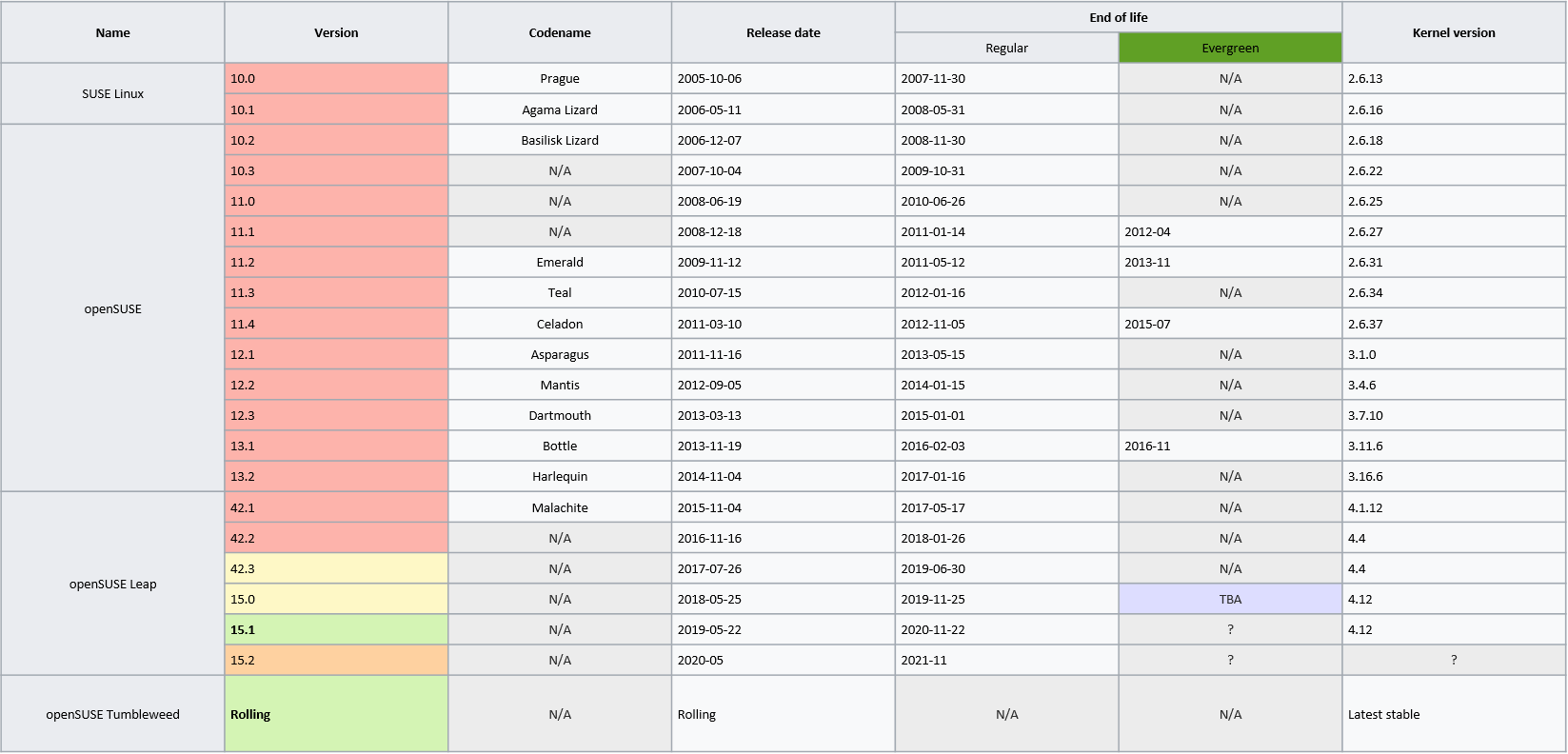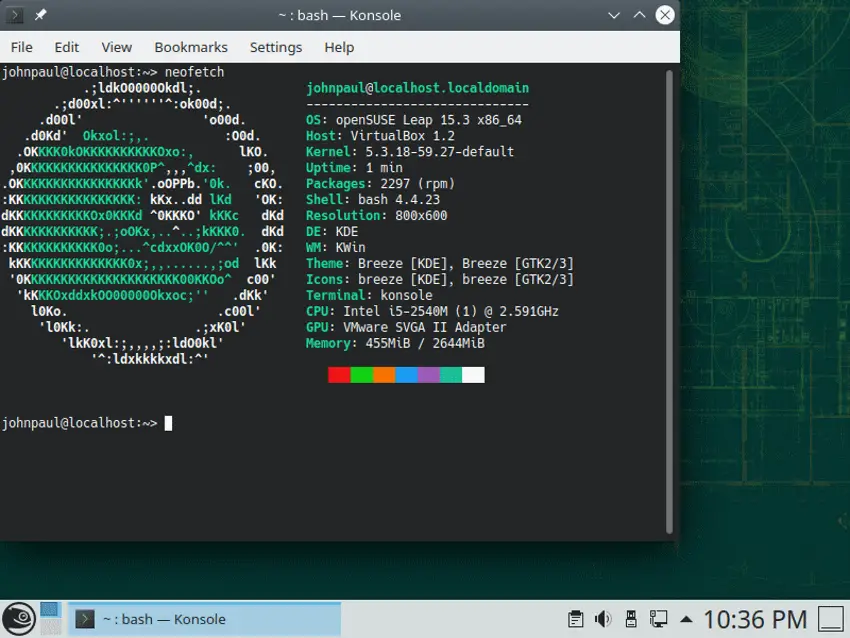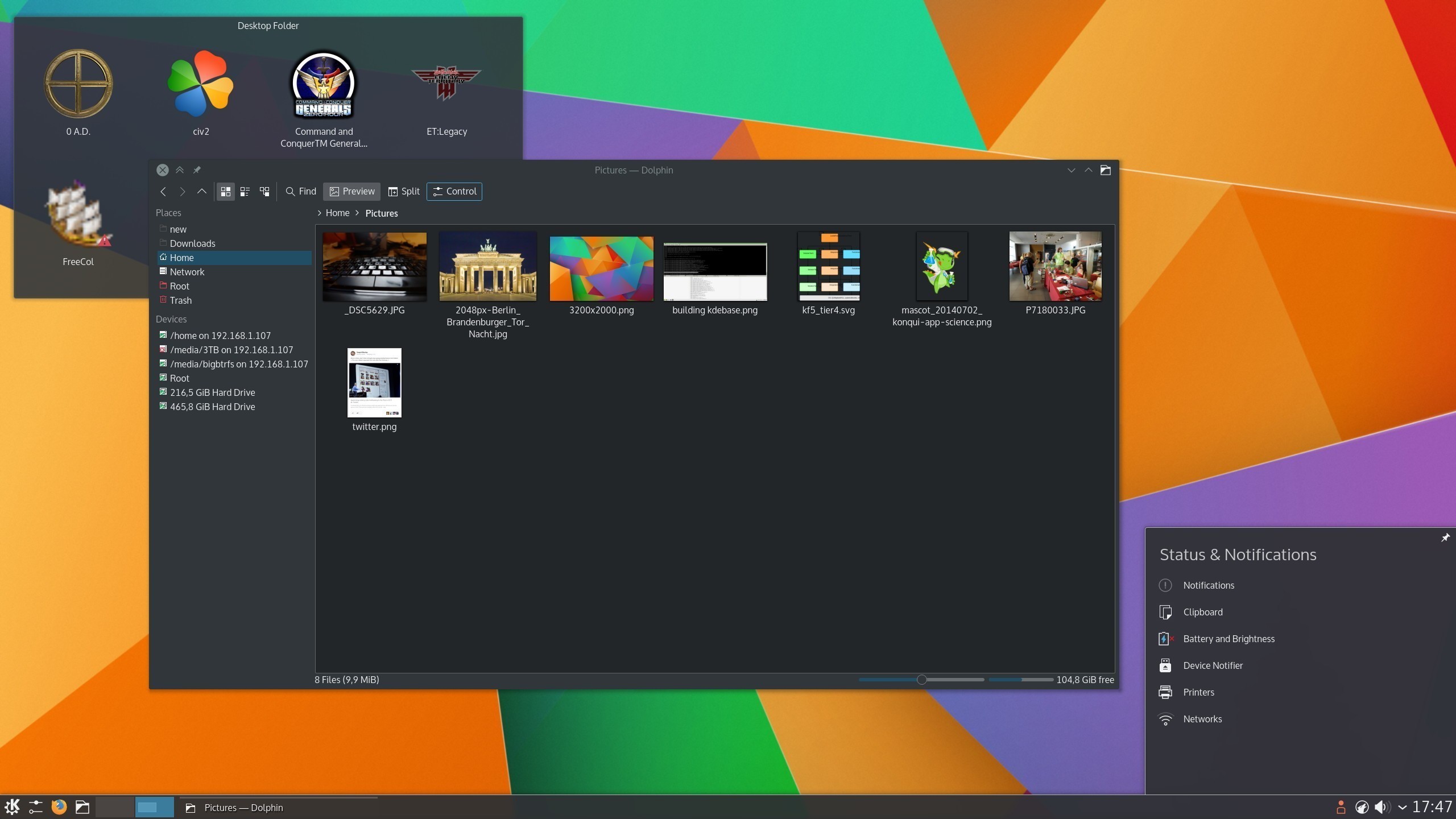Opensuse Leap Vs. Tumbleweed: Which Suse Version To Choose?

Executive Summary

OpenSUSE is a free and open-source Linux distribution renowned for its stability, reliability, and extensive software repositories. It offers two distinct versions: Leap and Tumbleweed, each designed to cater to different user needs. Leap provides a stable and long-term support platform, while Tumbleweed offers a rolling release model with continuous updates. This article delves into the key differences between OpenSUSE Leap and Tumbleweed to guide readers in selecting the optimal version for their specific requirements.

Introduction
The choice between OpenSUSE Leap and Tumbleweed hinges on the balance between stability and cutting-edge innovation. Leap prioritizes stability, whereas Tumbleweed emphasizes delivering the latest software updates. Deciding which version aligns best with user preferences and usage scenarios is crucial.
Release Models
Leap
- Stable Release Model: Leap follows a traditional release cycle, with major releases published approximately every 8-12 months.
- Long-Term Support (LTS): Each Leap version receives security and bug fixes for a prolonged period, generally 36 months, guaranteeing a stable and secure platform.
- Predictable Updates: Updates in Leap are less frequent, ensuring system stability and minimizing potential disruptions.
Tumbleweed
- Rolling Release Model: Tumbleweed continuously incorporates the latest software updates as they become available, akin to a rolling upgrade process.
- Frequent Updates: Regular updates keep the system perpetually current with the newest software versions and security patches.
- Cutting-Edge Software: Tumbleweed is ideal for users seeking the latest software, including major new releases and developmental features.
Package Management
Leap
- Conservative Package Selection: Leap incorporates tested and stable software packages, with a focus on reliability and compatibility.
- Large Software Repository: Leap offers an extensive repository of binary packages, providing access to a wide range of software applications.
- Traditional Package Management: Package updates in Leap are cumulative, meaning all updates for a given package are bundled together.
Tumbleweed
- Speedy Package Updates: Tumbleweed delivers software updates rapidly, allowing users to promptly benefit from new features and security enhancements.
- Bleeding-Edge Packages: Tumbleweed includes up-to-date software packages, providing access to the latest code versions.
- Atomic Updates: Individual packages in Tumbleweed are updated independently, reducing the risk of system breakage during updates.
Stability and Reliability
Leap
- Stability First: Leap prioritizes stability over rapid updates, minimizing the likelihood of encountering bugs or encountering system instability.
- Minimal Changes: Leap releases incorporate only essential updates and bug fixes, ensuring a predictable and stable user experience.
- Rollback Option: If an update introduces unforeseen issues, Leap provides a straightforward rollback mechanism to revert to the previous system state.
Tumbleweed
- Rapid Updates: Tumbleweed’s continuous updates may occasionally introduce minor bugs or compatibility issues, inherent to its bleeding-edge nature.
- Frequent Changes: Due to rapid updates, Tumbleweed users may encounter more noticeable system changes compared to Leap.
- Advanced Troubleshooting: Tumbleweed requires a higher level of user expertise to resolve potential issues arising from frequent updates.
Use Cases
Leap
- Desktop and Server Stability: Leap excels in settings requiring stability and reliability, such as workstations, servers, and production environments.
- Mission-Critical Applications: For applications where stability is paramount, Leap’s long-term support and predictable updates are ideal.
- Conservative IT Environments: Organizations and individuals prioritizing stability and avoiding rapid change may find Leap more suitable.
Tumbleweed
- Development and Testing: Tumbleweed’s rolling release model is ideal for developers and testers who need access to the latest software versions.
- Bleeding-Edge Enthusiasts: Users seeking to experience the newest software advancements and are willing to tolerate potential bugs will appreciate Tumbleweed.
- Rapid Innovation Environments: Startups, research institutions, and individuals involved in cutting-edge projects may benefit from Tumbleweed’s constant updates.
Conclusion
Choosing between OpenSUSE Leap and Tumbleweed hinges on the user’s prioritization of stability versus cutting-edge innovation. For users seeking a stable and reliable platform, Leap’s long-term support and predictable updates are ideal. Conversely, for users embracing the latest software and willing to navigate potential instability, Tumbleweed offers unparalleled access to bleeding-edge technology. By carefully considering the distinct characteristics of each version, users can make an informed decision that aligns with their specific requirements and preferences.
Keywords:
- OpenSUSE
- Leap
- Tumbleweed
- Linux Distribution
- Rolling Release



“I’ve been using Tumbleweed for a few years now and I’m very happy with it. It’s always up-to-date with the latest software and security patches, and it’s very stable. I’ve never had any major problems with it.”
“I’m not sure about Tumbleweed. I’ve heard that it can be unstable and that it’s not as well-tested as Leap.”
“Both Leap and Tumbleweed have their pros and cons. Leap is more stable and well-tested, while Tumbleweed is always up-to-date with the latest software. It really depends on your individual needs and preferences.”
“I think Tumbleweed is the better choice. It’s more up-to-date and it has a larger software repository.”
“Tumbleweed is like a rollercoaster. It’s exciting and fast, but it can also be a bit scary.”
“I’m not sure which one is better. I’m just here for the popcorn.”
“I think Leap is like a wise old owl, while Tumbleweed is like a young and playful puppy.”
“I’m new to Linux and I’m not sure which one to choose. Can someone help me out?”